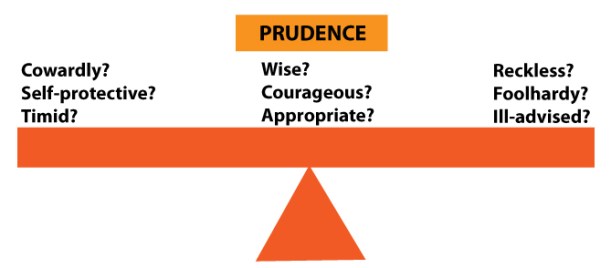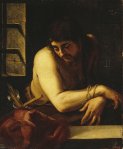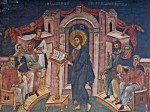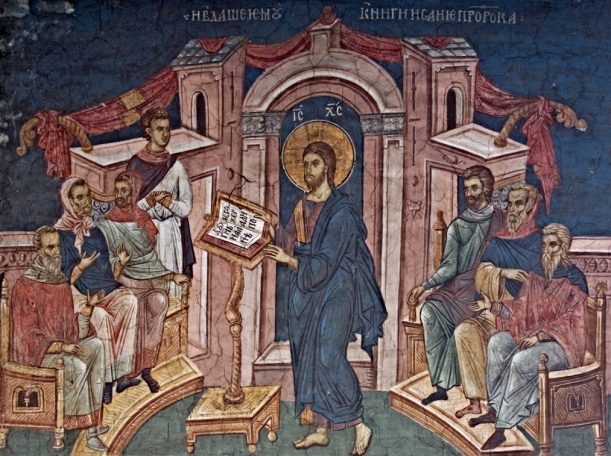
The Calling of Peter and Andrew, Mosaic, 6th century, Basilica of Sant’Apollinare Nuovo, Ravenna, Italy.
Calculation and rationality can only take us so far when it comes to following Christ. Every now and then, Christ calls us to do something which may, to others, seem a bit imprudent.
Consider the disciples in today’s Gospel. There they were, Simon and Peter, James and John enjoying another humdrum day at the nets, when Jesus summons them to follow him. And they drop everything and go. Can this possibly be sensible – leaving the security of their trade, abandoning their family responsibilities?
Surely the prudent person would have been more like the young man in Luke 9:61, to whom Jesus says, ‘Follow me’.
[He] replied, ‘Let me go and bury my father first.’ But Jesus answered, ‘Leave the dead to bury their dead; your duty is to go and spread the news of the kingdom of God.’
What about the rich young man in Matthew 19:21-22?
The young man said to him, ‘I have kept all these [commandments]. What more do I need to do?’ Jesus said, ‘If you wish to be perfect, go and sell your possessions and give the money to the poor, and you will have treasure in heaven; then come follow me.’ But when the young man heard these words he went away sad, for he was a man of great wealth.
Jesus is asking him to do what the world might consider foolish and reckless.
Then there’s the widow in Luke 21:1-4:
… he noticed a poverty-stricken widow putting in two small coins, and he said, ‘I tell you truly, this poor widow has put in more than any of them; for these have all put in money they could spare, but she in her poverty has put in all she had to live on.’
Surely that was imprudent! Shouldn’t she have kept something aside for herself?
Part of the difficulty in our understanding is that our use of the word prudent in contemporary English has shifted. It now has overtones of cautiousness, whereas the traditional usage is much richer than that.
Prudence is the ability to decide where an act is on the sliding scale from those acts which are cowardly, over-cautious and self-protective to deeds which are reckless and needlessly risky. Somewhere in the middle of these two extremes are acts which are courageous. Too much caution will make you immobile with fear; too little caution and you may end up in hot water. But Jesus doesn’t seem to mind people making radically incautious choices when it comes to his Kingdom.

The question is, “What does the Holy Spirit want?” This is the whole point of the Holy Spirit’s gift of Counsel or Right Judgement – to perfect the virtue of prudence, the ability to choose wisely with this single criterion in mind: “Does it help advance the proclamation of the Gospel?”
So we have to rethink Prudence in the light of an act’s service to the Gospel. That is why the disciples’ leaving their livelihood, or a person giving his money away to the right cause, or being willing to die rather than renounce his faith, can, in God’s eyes, be supremely prudent.
But prudential decisions are not made merely in a dry, analytical framework. Today’s readings give us a glimpse of the audaciousness, surprise and joy that accompany a radical decision for Christ.
The people that lived in darkness
has seen a great light;
On those who dwell in the land and shadow of death
a light has dawned.
It’s not easy to describe the inner landscape of a person who has been illuminated by the Holy Spirit. But it’s as if one now inhabits a mental universe where all things are possible, where the most tricky situations can be entrusted to a loving Father, where self-forgetfulness replaces self-consciousness. There’s something about Jesus that has enlightened the disciples on this day by the Sea of Galilee and stirred up the courage and the passion to abandon themselves to his plan.
If we look at the lives of holy people, we can get a sense of their joyful, incautious abandonment to Christ.
| St Francis of Assisi | .. gave up the opportunity to live a life of luxury as the son of a silk merchant, and devoted himself to spreading the Gospel through preaching, living the same life of poverty as the poorest of the poor and restoring several ruined churches. |
| St John Bosco | … had a bold idea to help street children and unemployed boys to find work, safe lodging and a grounding in Christ. Despite his almost constant lack of resources, he worked tirelessly to establish his Oratory and trusted in God to supply their needs. |
| St Katharine Drexel | … gave up her seven million dollar fortune to join the Sisters of Mercy and found the Sisters of the Blessed Sacrament, providing schools and missions to native Americans. |
| St Damien of Molokai | … gave up his personal comfort to share his life with the quarantined leper colony in Hawaii, building schools, roads, hospitals and churches to provide for their material and physical needs. |
| Mother Angelica | … despite knowing nothing about broadcasting, had a bold vision to evangelise through television and, starting from small beginnings, went on to develop EWTN, the largest religious media network in the world. |
Let’s try having a conversation with God today about his purposes for us – he might be about to inspire us to do something joyfully bold for his Kingdom!
Today’s readings
Word format: year-a-3rd-sunday-2017
Pdf format: year-a-3rd-sunday-2017










